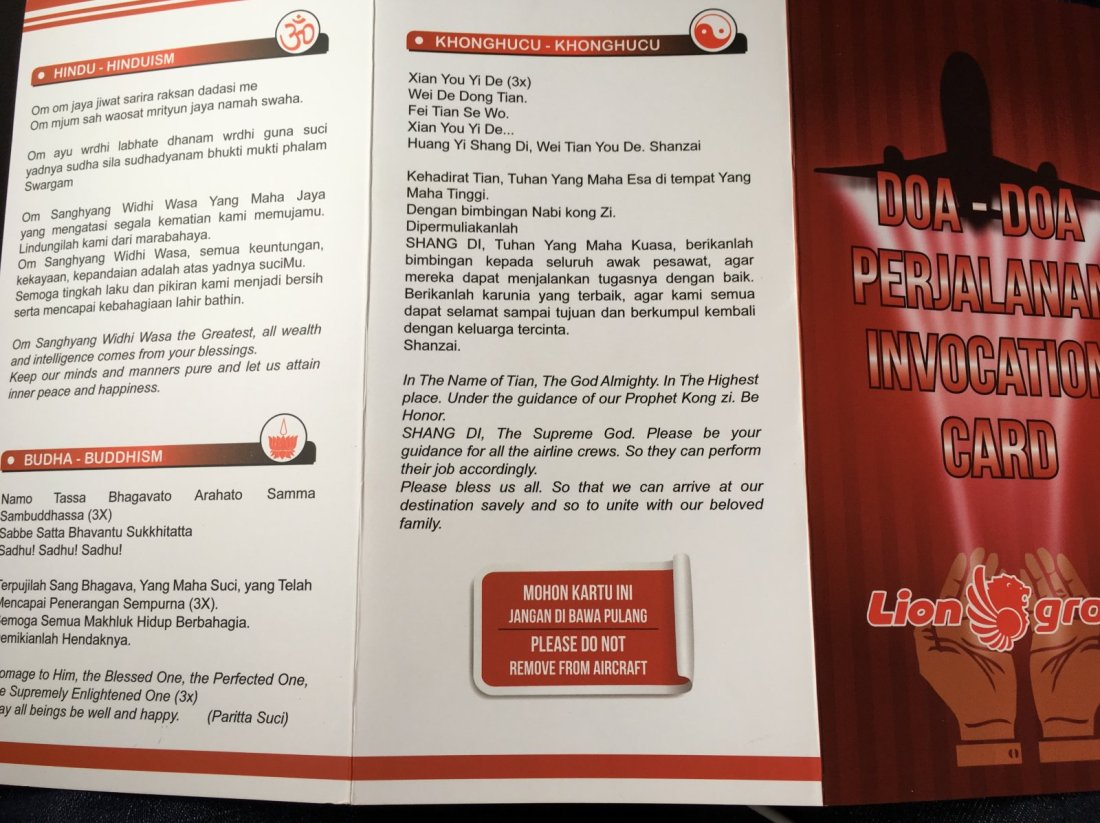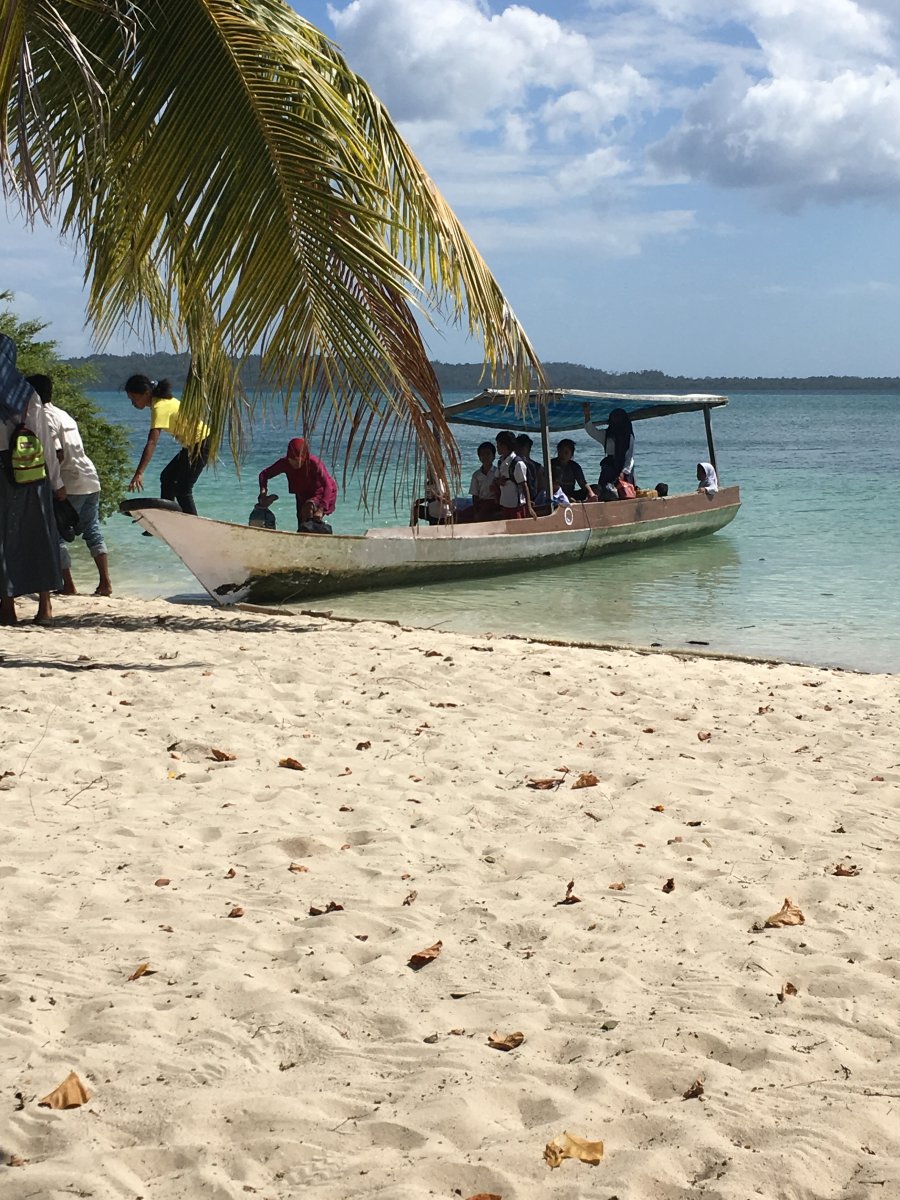Weighting up my alternatives, after the boat cancellation, it was clear I had to retrace part of my journey by air, since there were no direct flights from Komodo to the island of Sulawesi (Celebes). Both options, via Bali or via the city of Surabaya in Java were equally expensive for a last minute fare, and I chose the latter in order to avoid disruption from tourists evacuating Bali after the earthquake. My first flight at 10:35 with Lion Air was canceled and we were moved to the 13:50 flight, along with a meal of consolation. This is when I had that discussion about Euphrates river.


Once in Makasar, the capital of Sulawesi, I spent half of the next day admiring the surreal promenade called Pantai Losari and the Dutch colonial remnants of Fort Rotterdam. Speaking a few Indonesian words apparently saved me a few rupiahs, since the officer decided to offer me with the discounted ticket for the locals. On the other hand, a local tour guide managed to take my whatsapp and flood it in with messages about day long trips and pictures of ‘unmissable’ places.


My entrance to Wakatobi islands was the airport of Wangi-Wangi. The name Wa-ka-to-bi comes from the first letters of the four islands: Wangi-Wangi, Kaledupa, Tomia and Binongo. Odd! My target was the second island, Kaledupa, and since the speedboats departed only in the morning, I had to stay one night in Wanci, the capital of Wangi-Wangi. This is probably the biggest disadvantage for tourists traveling to this place: you need two extra nights, one in each direction.
Wanci, however has its charms. A busy night market full of fish and figures moving in the dark. The local girls were unusually direct and flirty for this part of the world. The only other Westerner appeared next to me only for a moment, to help me buy some fruit using his Indonesian. On my way to the harbor, the next day, I even spotted a demonstration. “Local authorities are rubbish”, said my moto-taxi driver. This place was definitely different from the touristy places I’ve seen in the first 20 days.


Once in Kaledupa, I stayed in a Dutch lady G.’s bungalows in a tiny island off the coast called Hoga. On the way I teamed up with Italo-Lebanese-Briton A. and his Moroccan girlfriend I. and a mellow retired music teacher from Queensland J. Initially there was no free bungalow for J. but general manager and excellent cook local lady V. found a solution, but moving around some of the staff. One doesn’t want to sleep in the beach with the small Komodos – in fact small monitor lizards – strolling around. Enchanted by the isolation and tranquility of this place and the hospitality of the Dutch and Indonesian ladies, I decided to spend a few more nights there. I even did a few more dives in the waters that Jacques-Yves Cousteau described as “underwater Nirvana” and the best to dive in the world.




The people of the sea, called Bajau, arrived on the second morning for the Dutch lady’s birthday. They barely set a foot in the land, but instead did some boat racing to honour their beloved benefactor. G. had recently made them a football pitch in their village on stilts and was constantly helping them with their troubles. They are literally her children. G. herself when younger had sailed these waters, fell in love with the sea gypsies and the beauty of the place and when she later received a heritage she decided to come back and build this business. Even the local dignitaries were here today. Of course, running a business as a foreigner in Indonesia is not made easy by the Indonesian law, and G. had a few interesting stories to say on her relationship with the authorities.


In this occasion I met a Bajau looking around 20 years old, though it was hard to be sure. He spoke some English, but remained distant. I asked him what he was doing, he thought for a while, and glancing at his friends, said, “spear fishing”. Then I asked him what music he liked and again after looking at his friends, he said laughing, “Suka Musik Jawa” (not sure if that was a type of music or just said “I like the music of Java”). I noted down his name, S.
The second Bajau I met was D.. About 20, he had just received the diploma of diving instructor. Seemed strange because the Bajau are traditionally free divers, but an excellent job opportunity nevertheless. He was my faithful diving partner. We never exchanged a single word, but his sweet smile and respect made him the ideal companion.
I met some wonderful tourists in Hoga, visited the only village of the tiny island, consisting of a dozen wooden huts and children playing with the mud, discovered the haunted buildings of an abandoned NGO, listened to the strange sounds of the jungle. Then, I decided it was time to break the spell that holds me in this island, and I got G. to arrange for a Bajau to pick me up. Shortly after the morning boat with pupils from the island left for the Bajau village, where there is a school, I also jumped on the boat of my new Bajau hosts





